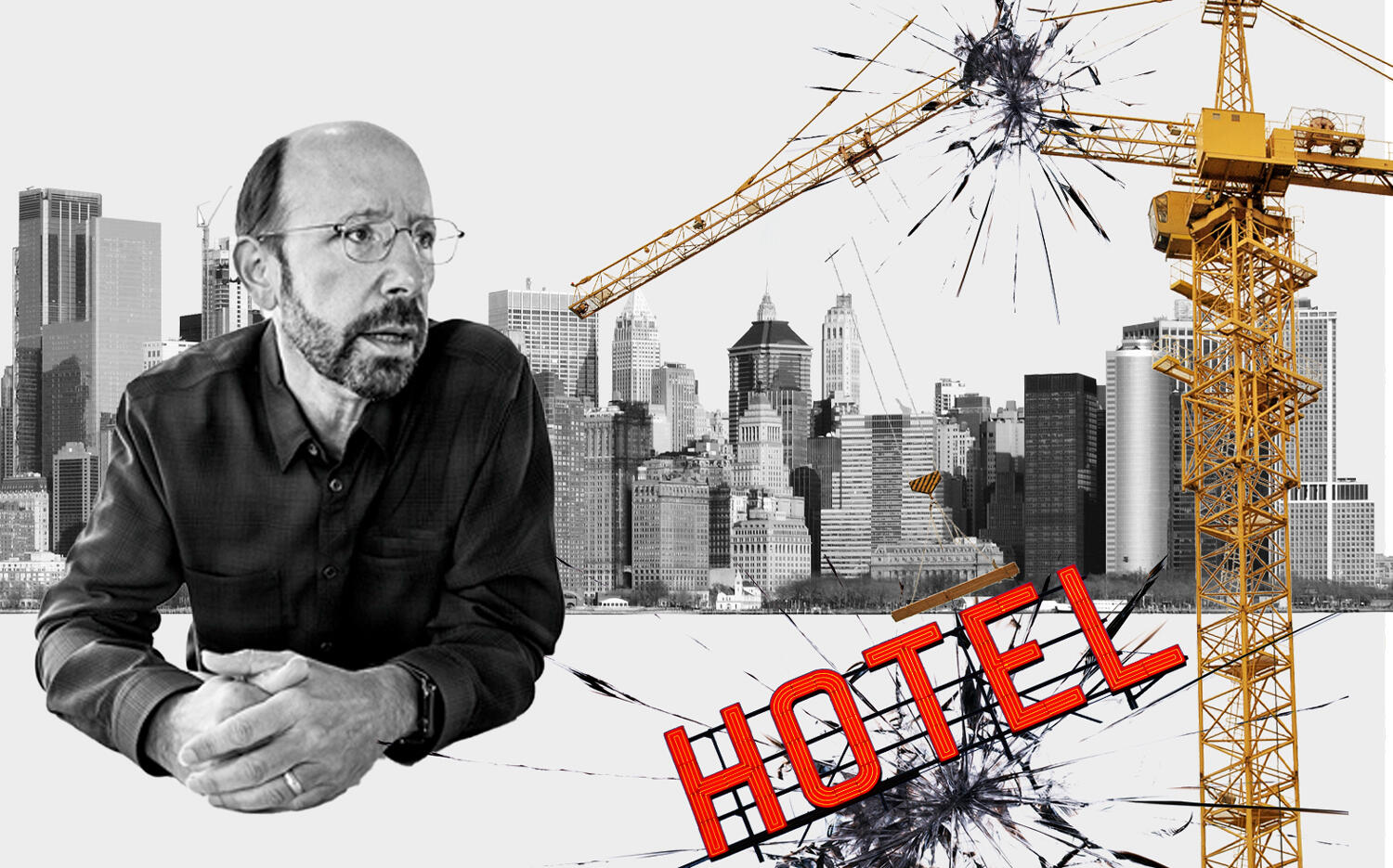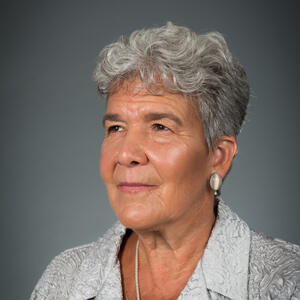Trending
Real estate calls hotel bill an “F-U to the rest of the world”
City Council members cheer measure requiring their approval for new hotels

A “death knell” to hotels in Midtown. A “big f-u to the rest of the world.”
These were just some of the comments by real estate professionals Wednesday about a measure to require special permits for new hotels citywide.
The City Planning Commission held a hearing on the text amendment that would force hotel projects to endure the city’s seven-month land use review gauntlet. The proposal enjoys support from the hotel workers union and various elected officials but has drawn the ire of land use experts, developers and hoteliers. City Planning officials have also raised doubts.
Gene Kaufman, an architect whose business focuses on hotel work, said the measure would effectively halt hotel construction in the city, noting that a similar one has already stifled projects in light manufacturing districts.
He called the application “New York’s big f-u to the rest of the world saying ‘don’t come here,’” and said it would lead to a proliferation of homeless shelters: Hotels intended as temporary quarters for homeless New Yorkers are exempt from the special permit requirement.
The decision will shape the future of hotel development for an industry devastated by the pandemic. According to a report by the American Hotel & Lodging Association, the city’s hotel market has entered an economic depression. In May, revenue per available room was $95, down from $249 in May 2019. State lawmakers passed legislation this year to spur the conversion of hotels and office buildings into affordable housing.
Early in the hearing, at least three City Planning commissioners cited a lack of land use rationale for the application. Commissioner Larisa Ortiz criticized the idea of singling out one type of use in commercial districts. Commissioner Alfred Cerullo III called it bad policy and said “there is no data to support that there is actually a problem to rectify.”
Even if there were a land use justification, Cerullo said, the devastation wrought by the pandemic should take it off the table.
“What rational government would move to do this at this time?” the Grand Central Partnership president and former City Council member asked.
Commissioners also floated the possibility of creating a sunset clause so that the city could let it lapse if it proves problematic.
Several City Council members testified in support of the plan, saying that it would provide community members with more say about what is built in their neighborhoods. They cited quality-of-life issues, such as noise and traffic.
“I believe more community input is always a good thing,” said Brooklyn Council member Justin Brannan, a contender for City Council speaker. Council member Antonio Reynoso, in line to become Brooklyn’s next borough president, said an explosion of new hotels has put a “significant strain on surrounding residential neighborhoods.”
Manhattan Borough President Gale Brewer, who objected to a previous attempt to restrict hotel development in Union Square through a special permit mandate, spoke in favor of the citywide initiative. She noted that the hotel unions are open to discussing a carveout for Times Square.
The union has endorsed Brewer’s campaign for City Council this year and also Reynoso’s bid for borough president. Both won their Democratic primaries.
Ahead of Wednesday’s meeting, the Real Estate Board of New York provided an analysis it commissioned on the plan. The study, by planning consultancy AKRF, projects it would reduce economic activity related to construction by $37.8 billion between 2026 and 2035. Over that period, the city would forgo $8 billion in tax revenue and miss out on 75,000 permanent jobs, according to the firm.
The analysis also warned that limiting hotel construction could encourage more short-term rentals via Airbnb and other such companies.
By city officials’ own estimates, requiring special permits could cost the city $350 million in tax revenue by 2025 and up to $7 billion by 2035, the New York Times reported. According to City Planning’s final draft scope of work, the proposal would leave New York 47,000 hotel rooms short of the demand in 2035.
Agency officials, however, have stressed the need to create a “uniform zoning framework” that will ensure new hotels don’t clash with adjacent properties.

City Planning Commission chair Marisa Lago
Behind the scenes, administration officials have been more critical of the proposal, which Mayor Bill de Blasio supports. In a memo to City Hall last year, Marisa Lago, chair of the City Planning Commission, reportedly warned that it “could be seen as contrary to economic recovery principles and sound planning.”
Some former City Planning officials have criticized the application for lacking a land use justification and posing a threat to industries that rely on tourism. On Wednesday, a former spokesperson for City Planning, Rachaele Raynoff, rebuked the proposal on Twitter.
The hotel special permit is as ill-conceived as the mayor’s presidential run and far more damaging. If this passes as proposed, he will be remembered not for universal pre-K, but for stunting an industry that employs tens of thousands and is an economic engine for the city. https://t.co/PC7YrLyAm2
— Rachaele Raynoff (@thoughtsin2type) July 14, 2021
Moses Gates, vice president for housing and neighborhood planning at the Regional Plan Association, testified that the proposal does the opposite of creating a uniform framework, instead installing a “heavily discretionary,” “ad-hoc” process for approving new hotels.
He questioned the wisdom of restricting hotel development but not cemeteries, fertilizer manufacturers, petting zoos, temporary carnivals and other uses.
The mayor has made the proposal a priority, a move that some see as a favor to the Hotel Trades Council, the only labor union to endorse his short-lived presidential run. Because special permits must receive the blessing of the City Council, the union would gain leverage to facilitate unionization of new hotels as a condition of approval.
An attorney for the Hotel Trades Council, Christopher Rizzo, noted that commercial zones in the city increasingly incorporate residential use and said residents should be able to weigh in on the design and quality of a hotel. He noted that he has a personal reason for supporting restrictions on hotel development: He lives near two “hot sheet” hotels.
“There’s a reason why hotels are not permitted in residential districts,” he said.
He called the city’s hotel market oversaturated and said restricting new development is critical to supporting existing hotels.
The Hotel Trades Council funded a study by the Pratt Center that is supportive of a citywide special permit requirement, arguing that it would allow officials to ensure that adequate social services are available in the event that the hotel fails and is converted into housing for low-income and homeless people.
The report warns that unfettered hotel development could lead to the growth of “lower margin, less well capitalized hotel operations,” posing “a threat to the stability of the industry and its characteristic high-quality jobs.”
“The industry is already seeing a decline in revenue per available room,” the report states. “At some point, this decline will influence industry wages.”
Requiring extra approvals could also promote local hiring of hotel employees and avoid clashes in land use, according to the union-funded report.
The city previously took a gradual approach to restricting hotel development by making special permits mandatory in certain areas, including Midtown East, the Garment District and light manufacturing zones. City Hall scrapped a similar proposal for Union Square in favor of pursuing a citywide version. Hoteliers and developers argue that the special permits deter the construction of hotels because special permits add months and costs to project timelines.
Paul Selver, an attorney with Kramer Levin who referred to the proposal as a “death knell,” said the cost of taking a project through the city’s Uniform Land Use Review Procedure can run into the seven figures. If the process leads to hotels with unionized staffs, operators would have to pay higher wages.
“You really don’t want to get yourself involved in a process where in the end, you are going to be voted up or down on issues that have nothing to do with land use,” he said during an interview. “And that is what has happened.”




